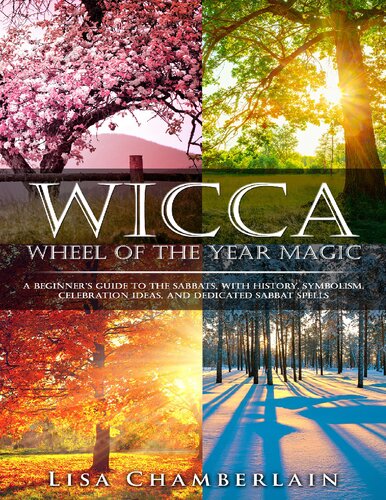

Most ebook files are in PDF format, so you can easily read them using various software such as Foxit Reader or directly on the Google Chrome browser.
Some ebook files are released by publishers in other formats such as .awz, .mobi, .epub, .fb2, etc. You may need to install specific software to read these formats on mobile/PC, such as Calibre.
Please read the tutorial at this link: https://ebookbell.com/faq
We offer FREE conversion to the popular formats you request; however, this may take some time. Therefore, right after payment, please email us, and we will try to provide the service as quickly as possible.
For some exceptional file formats or broken links (if any), please refrain from opening any disputes. Instead, email us first, and we will try to assist within a maximum of 6 hours.
EbookBell Team

5.0
98 reviewsIf you’re reading this guide, you probably already know that Wiccans celebrate several Sabbats, or holidays, over the course of a year. These eight holy days, spaced roughly six weeks apart, make up the Wiccan “Wheel of the Year,” a term that emphasizes the ever-turning nature of life on Earth.
Of course, the Wheel of the Year is not unique to Wicca—many other modern Pagan spiritual paths also observe these ancient sacred days, oftentimes with traditions and customs similar to those found within Wicca.
The information in this guide is rooted in Wicca, but much of it is applicable to Pagans of all stripes, as well as anyone who is simply curious about the rich traditions surrounding these milestones of the Old Religion.
It’s important to note that Wiccans also observe twelve (sometimes thirteen) Esbats, or ritual observances of the Full Moon. These monthly Esbats are often referred to as “the second wheel of the year” and together with the Sabbats make up the full Wiccan religious calendar.
Because a guide of this length could never do justice to each celebration involved in the entire Wiccan year, our focus here will be on the Sabbats, which mark the Sun’s journey around the Earth from season to season. This is not intended to dismiss the importance of the Esbats, but simply to allow for a more thorough exploration of the eight “days of power” and what they mean to those who honor them.